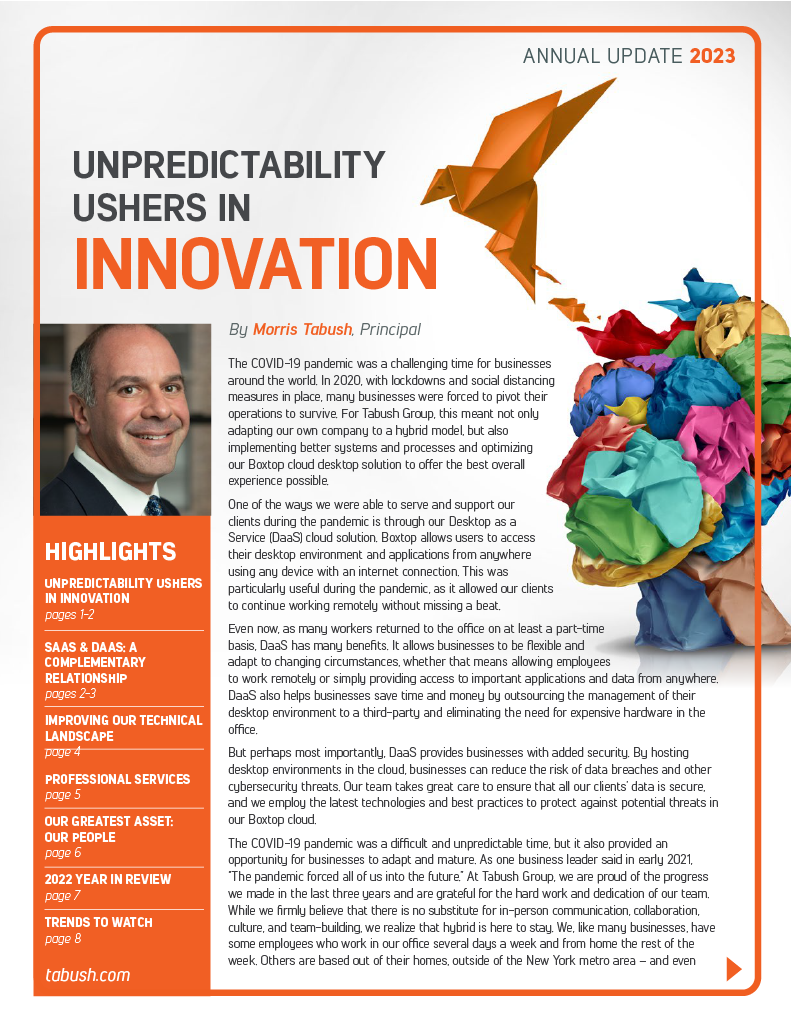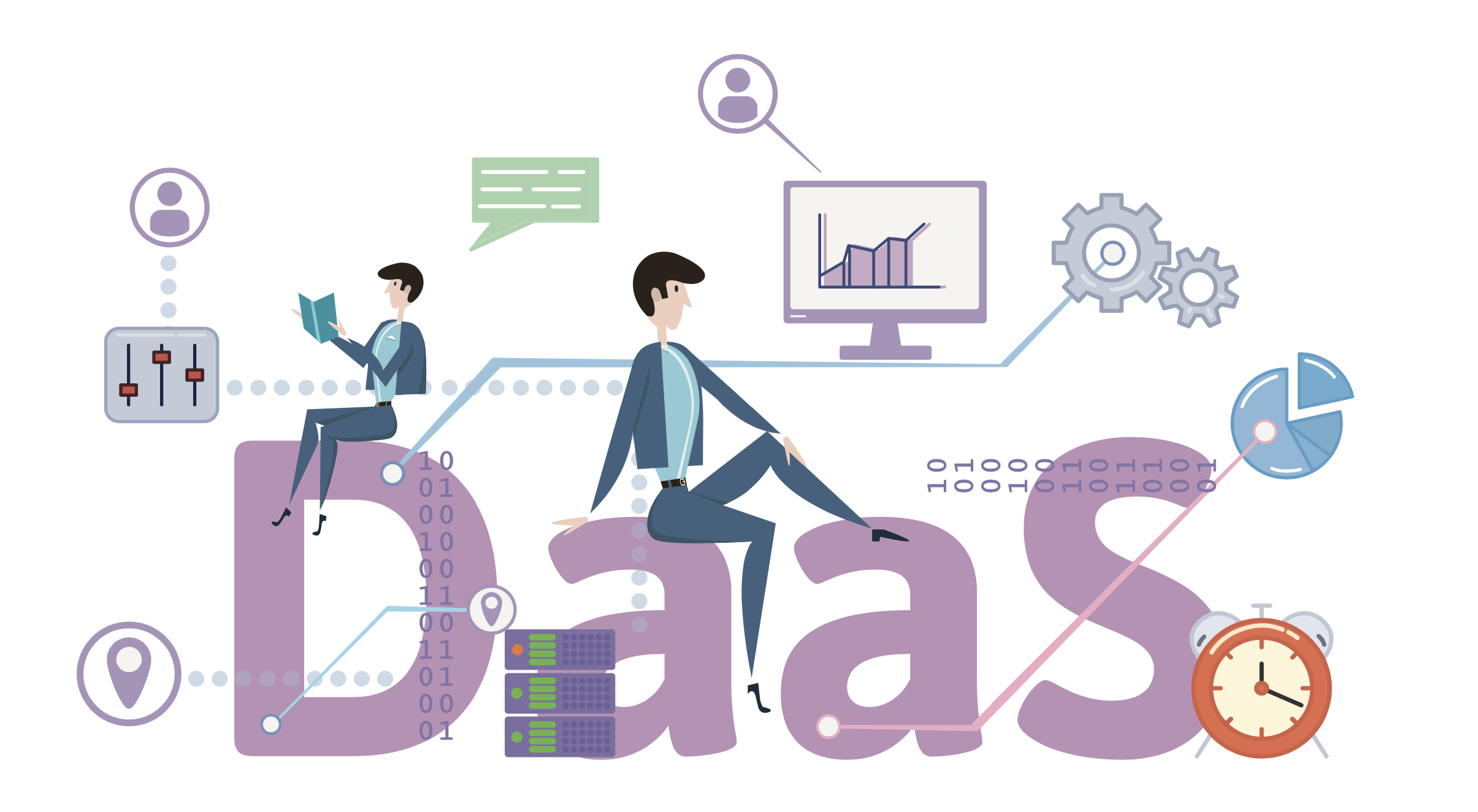Despite the unpredictability of 2022, Tabush Group rose to the challenge and demonstrated our strength as innovators. Our pursuit to be better led us to improve our technical landscape, streamline our personnel processes, and enhance our internal and external communications. Above all else, we delivered outstanding service to our clients that exceeded expectations. Read our annual update below for an in-depth look at our progress in 2022 and a glimpse into our plans for the future.











